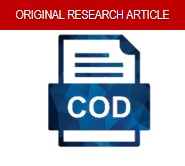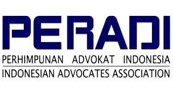When the Law Fails to Protect Children with Disabilities from Sexual Abuse
DOI:
https://doi.org/10.46924/jihk.v7i1.309Keywords:
Children with Disabilities, Substantive Justice, Sexual ViolenceAbstract
Sexual abuse of children with disabilities represents a particularly complex form of sexual violence and poses significant challenges to the criminal justice system in Indonesia. This study aims to analyze the differences in the application of criminal law to perpetrators of child molestation against children with disabilities and those without, to assess the extent to which national legal frameworks have incorporated the principle of substantive justice for victims with disabilities, and to identify the key factors contributing to weak legal protection—both in terms of legal substance, institutional structure, and socio-cultural context. The study employs a normative legal approach, utilizing doctrinal analysis of statutory regulations alongside selected case studies. The findings reveal that, despite the existence of relevant legal instruments—such as Law No. 35 of 2014 on Child Protection, Law No. 8 of 2016 on Persons with Disabilities, and Law No. 12 of 2022 on Sexual Violence—legal protections for children with disabilities remain largely formalistic and fail to adequately address the specific needs of these vulnerable victims. The study concludes by emphasizing the urgent need for a fair and substantive reformulation of laws and policies, as well as a comprehensive restructuring of the criminal justice system to make it more responsive and inclusive toward vulnerable populations.
Downloads
References
Journals
Arianto, Iqbal Bimo Nur. “Perlindungan Anak Penyandang Disabilitas Terhadap Kekerasan Seksual.” Jurnal Res Justitia: Jurnal Ilmu Hukum 2, no. 1 (2022): 198–203. https://doi.org/10.46306/rj.v2i1.
Gusnita, Chazizah. “Reviktimisasi Perempuan Korban Eksploitasi Seksual Revenge Porn Dan Blackmail Dalam Relasi Pacaran.” Ikraith-Humaniora: Jurnal Sosial Dan Humaniora 8, no. 2 (2024): 124–32. https://doi.org/10.37817/ikraith-humaniora.v8i2.3107.
Hikmah, Faidatul, and Rio Armanda Agustian. “Konvergensi Konsep Retribusi Dan Rehabilitasi Dalam Filsafat Hukum Pidana Kontemporer Indonesia.” Crepido: Jurnal Mengenai Dasar-Dasar Pemikiran Hukum: Filsafat Dan Ilmu Hukum 5, no. 2 (2023): 217–28. https://doi.org/10.14710/crepido.5.2.217-228.
Iqbal, Muhamad, and Iin Indriani. “Hukum Dalam Tantangan Perlindungan Penyandang Disabilitas Terhadap Kekerasan Seksual.” Pamulang Law Review 7, no. 1 (2024): 112–119. https://doi.org/10.32493/palrev.v7i1.43288.
Kairupan, Stella Gita. “Perlindungan Hukum Terhadap Perempuan Dan Anak Penyandang Disabilitas Yang Menjadi Korban Kekerasan.” Lex Administratum 9, no. 2 (2021): 35–45. https://ejournal.unsrat.ac.id/v3/index.php/administratum/article/view/33174.
Mukmin, Ahmad. “Perlindungan Hukum Bagi Anak Penyandang Disabilitas Sebagai Korban Pencabulan Oleh Orang Tua.” Dinamika: Jurnal Ilmiah Hukum 26, no. 3 (2020): 381–94. https://jim.unisma.ac.id/index.php/jdh/article/view/5482.
Pakpahan, Zainal Abidin. “Kepastian Hukum Atas Hak Penyandang Disabilitas Sebagai Warga Negara Dalam Mendapatkan Pekerjaan Di Indonesia.” Jurnal Warta Dharmawangsa 18, no. 2 (2024): 379–98. https://doi.org/10.46576/wdw.v18i2.4439.
Pratama, Seno Widya. “Perlindungan Hukum Terhadap Anak Penyandang Disabilitas Korban Pemerkosaan.” Hakim: Jurnal Ilmu Hukum Dan Sosial 2, no. 2 (2024): 243–57. https://doi.org/10.51903/hakim.v2i2.1777.
Puspa, Perwita Chandra, Oktavia Adi Roesnia, Tsabita Az-zahra, Berliana Clara Bella, Arsya Ghanniyah Hariyadi, and Arief Budiono. “Perlindungan Hukum Terhadap Korban Pelecehan Seksual Kepada Penyandang Disabilitas Dalam Lingkungan Masyarakat.” Terang: Jurnal Kajian Ilmu Sosial, Politik Dan Hukum 2, no. 1 (2025): 20–30. https://doi.org/10.62383/terang.v2i1.737.
Rivanie, Syarif Saddam, Syamsuddin Muchtar, Audyna Mayasari Muin, A.M. Djaelani Prasetya, and Ali Rizky. “Perkembangan Teori-Teori Tujuan Pemidanaan.” Halu Oleo Law Review 6, no. 2 (2022): 176–188. https://doi.org/10.33561/holrev.v6i2.4.
Sari, Nadila Purnama, Anak Agung Sagung Laksmi Dewi, and Luh Putu Suryani. “Perlindungan Hukum Terhadap Anak Penyandang Disabilitas Sebagai Korban Kekerasan Seksual.” Jurnal Preferensi Hukum 2, no. 2 (2021): 359–364. https://doi.org/10.22225/jph.2.2.3338.359-364.
Siregar, David Brain, Juanrico Alfaromona Sumarezs Titahelu, and Denny Latumaerissa. “Dampak Reviktimisasi Terhadap Penyintas Kekerasan Seksual Dalam Proses Penyidikan.” Pattimura Law Study Review 1, no. 1 (2023): 20–28. https://doi.org/10.47268/palasrev.v1i1.10866.
Subastian, Perta Wida, and Emy Rosnawati. “Legal Protections for Disabled Child Victims of Sexual Violence in Sidoarjo, Indonesia.” Academia Open 8, no. 1 (2023). https://doi.org/10.21070/acopen.8.2023.6198.
Tjolleng, Arfah, Muhammad Fachri Said, Nur Eka Febriani R, and A. Dewi Sartika. “Perlindungan Ham Bagi Anak Penyandang Disabilitas Dari Perlakuan Pelecehan Seksual.” Innovative: Journal of Social Science Research 5, no. 1 (2025): 2149–2167. https://doi.org/10.31004/innovative.v5i1.17773.
Zakie, Mukmin. “Konsepsi Hak Menguasai Oleh Negara Atas Sumberdaya Agraria.” Jurnal Hukum Ius Quia Iustum 12, no. 29 (2016): 111–127. https://doi.org/10.20885/iustum.vol12.iss29.art9.
Proceedings
Rodliyah, Rodliyah, Widodo Dwi Putro, and Cahyowati Cahyowati. “Perlindungan Hukum Bagi Perempuan Dalam Sistem Peradilan Pidana Di Indonesia.” In Prosiding Saintek, 3:237–60, 2021. https://jurnal.lppm.unram.ac.id/index.php/prosidingsaintek/article/view/228.
Books
Muladi, Muladi, and Barda Nawawi Arief. Teori-Teori Dan Kebijakan Pidana. Bandung: Alumni, 2010.
Downloads
Published
Issue
Section
License
Copyright (c) 2025 Nigel Jordan Giorgia Nandito Pidesta, Hafid Zakariya

This work is licensed under a Creative Commons Attribution 4.0 International License.
Authors who publish with this journal agree to the following terms:
- Copyright on any article is retained by the author(s).
- The author grants the journal, the right of first publication with the work simultaneously licensed under a Creative Commons Attribution License that allows others to share the work with an acknowledgment of the work’s authorship and initial publication in this journal.
- Authors are able to enter into separate, additional contractual arrangements for the non-exclusive distribution of the journal’s published version of the work (e.g., post it to an institutional repository or publish it in a book), with an acknowledgment of its initial publication in this journal.
- Authors are permitted and encouraged to post their work online (e.g., in institutional repositories or on their website) prior to and during the submission process, as it can lead to productive exchanges, as well as earlier and greater citation of published work.
- The article and any associated published material is distributed under the Creative Commons Attribution 4.0 International License



 Sinta ID:
Sinta ID: 


















